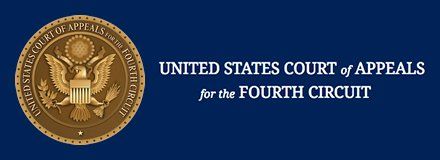PRACTICE AREAS
BLOG CATEGORIES
ASSOCIATIONS
Legal Audits: Why Your Business Needs One | William Day Law Group
As a Maryland attorney, I understand that the term "audit" often carries a negative connotation, evoking thoughts of IRS scrutiny and financial distress. However, from a legal perspective, an audit can be an invaluable tool for your business. Conducting a legal audit can not only save your organization money but also preemptively address potential legal challenges down the line. In Maryland, our firm specializes in providing comprehensive legal audits tailored to the unique needs of your business, ensuring that we identify and strategize solutions for any legal issues uncovered.
What exactly is a Legal Audit?
Think of a legal audit as a proactive health check for your business. Conducted by seasoned attorneys with a deep understanding of business law, these audits meticulously review various facets of your business. From your company's structure and management to its policies, procedures, and day-to-day operations, we assess all areas to identify any potential legal risks or compliance issues. This process is crucial for uncovering vulnerabilities that could lead to costly legal disputes or compliance penalties.
The reality of running a business is that it's easy to become engrossed in financial and operational concerns, especially during rapid growth phases. However, the legal well-being of your business is just as critical as its financial success. A legal audit performed by a knowledgeable business lawyer can ensure your company remains in good legal standing, safeguarding its future.
Preventative measures through a legal audit can significantly minimize legal risks, acting as a shield for your business against unforeseen legal troubles.
Coverage of a Legal Audit
The scope of a legal audit can vary based on your company's industry, the services or products it offers, and other specific factors. Nonetheless, there are common areas that most legal audits will scrutinize, including:
- Protection of Personal Assets: Ensuring your business structure effectively limits personal liability and that you're maintaining this structure properly to shield personal assets from company debts and obligations.
- Contracts: Evaluating the use of standard contracts that protect your company's interests, ensuring all business aspects are covered by contracts that are both current and legally enforceable.
- Employee Matters: Reviewing your employee handbook and ensuring your policies are in line with state and federal laws regarding employment and discrimination.
- Tax Compliance: Confirming adherence to all levels of tax laws, from local to federal, encompassing various tax categories.
- Intellectual Property and Trade Secrets: Protecting your intellectual property through copyrights and trademarks, and using nondisclosure agreements to safeguard trade secrets.
- Websites: Ensuring your website complies with copyright, terms of use, and privacy policy requirements.
- Recordkeeping: Assessing the adequacy of your recordkeeping practices to protect you and your company in legal or compliance matters.
- Customer Data Protection: Verifying that your data protection policies meet state, federal, and international privacy standards and that there are measures in place to prevent data breaches.
- Compliance: Reviewing your company's adherence to required permits, licenses, and regulations specific to your business sector.
This list is not exhaustive; working closely with an attorney is crucial to tailor your legal audit to your company's specific needs and risks.
For Maryland businesses interested in understanding more about legal audits or wishing to schedule one, our firm is at your disposal. We are committed to providing a thorough legal checkup for your company, ensuring its continued success and legal integrity. Contact us to discuss how a legal audit can benefit your business in detail.








